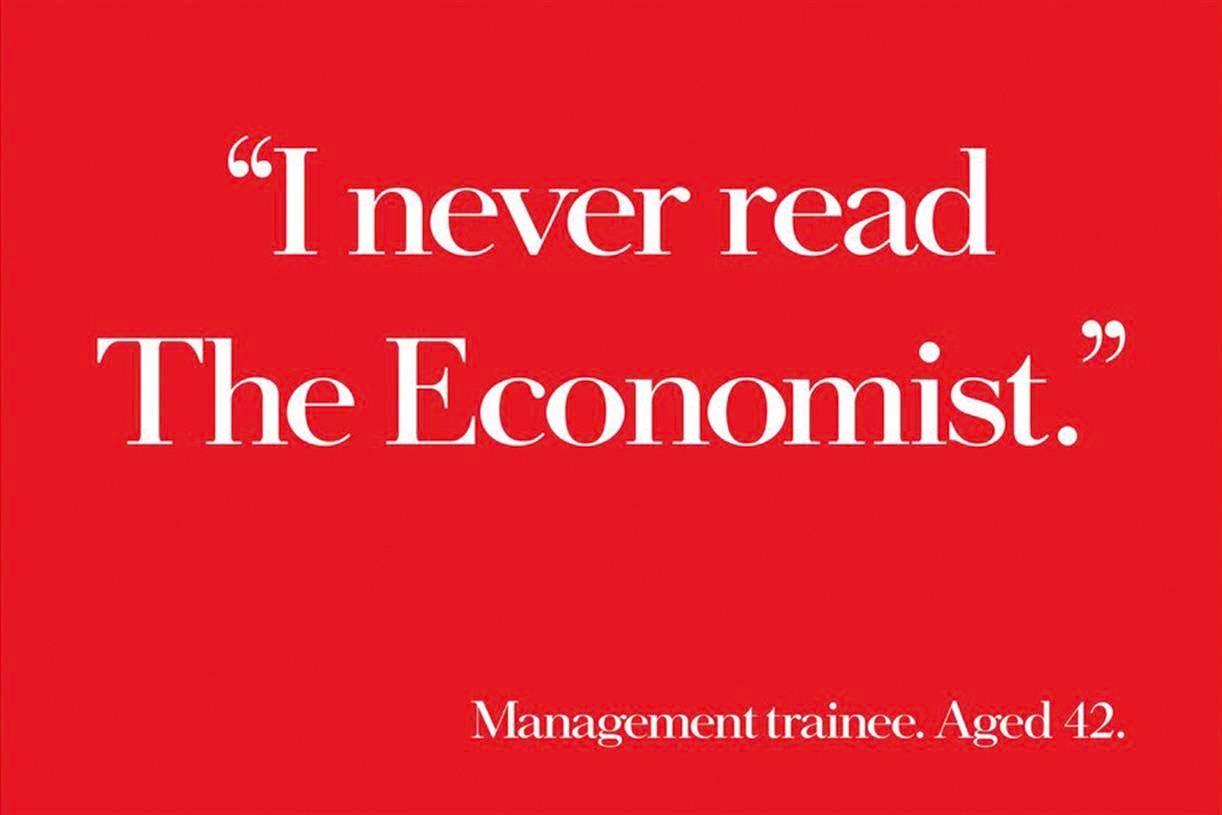№ 65: How To Call Someone A Dumbass Without Calling Them A Dumbass
It's not what you say but what you hear - Copywriting & Obliquity - The court jester
Most people think copywriting is about words.
It’s not.
It’s actually about looking for a big idea, usually a timeless human truth, and communicating it in a way that elicits a response.
The poet and essayist Maya Angelou was spot on about this when she said, “People will forget what you said, people will forget what you did, but people will never forget how you made them feel.”
This insight is the basis of how I craft effective communication. I think about words from a psychological perspective. Instead of asking what does it say? I ask how does it make people feel?
A lot of great advertising deploys humour to trigger an emotional response.
Let's take the famous Economist ad — which happens to be one of my favourite ads.
It’s one of those “Haha, I’m so smart” jokes. If you get it, it makes you feel a little bit clever. It has a coded message inferring that if you read the Economist, you will be more successful at your job.
However, if you were to deconstruct the ad, it’s actually quite nasty and elitist. It implies that a 42-year-old management trainee is too dumb to read The Economist.
Imagine if the ad was written in a more straightforward manner. You’d be sacked from the marketing team and blacklisted from every agency for being a bit of a jerk.
Fortunately, David Abbott, who wrote the copy above, knew you had to say some things obliquely to get the desired response. He also understood — what behavioural science calls The Ikea Effect — that we like to place a disproportionately high value on things we create. By allowing us, the reader, to infer and come up with the conclusion that we’re smarter than a 42-year-old management trainee, The Economist becomes more appealing to us.
Here’s another humourous ad. After running out of chicken nationwide in the UK, KFC immediately poked fun at themselves and apologised. The FCK is clever and witty, and it can’t help but put a smile on your face. We all know very well when we upset our spouse, the fastest way to forgiveness is to make them laugh.
Being funny is valuable to human society. This was the role of the court jester in a royal court. Their value is derived from their pathological need to tell the truth and say it to the king’s face in a humorous way.
As the old adage goes, “There's a grain of truth in every joke” or “Many a true word is spoken in jest.”
Comedians simply say what’s happening. They look at the world and then poke fun at it.
By being funny about what you say, you can get away with saying things that need to be said but can't be said straight.



